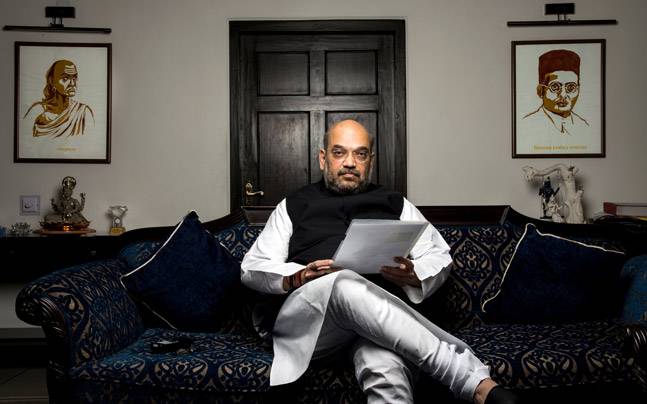In what can be termed as a major boost for India’s intelligence agencies, India Today has reported that Union Home Minister Amit Shah will chair a high level meeting on Friday for reviving the National Intelligence Grid (Natgrid), an ambitious project that seeks to connect the databases of the core security agencies of the Government of India. The object is to collect comprehensive patterns of intelligence which can be then readily accessed by the intelligence agencies. This is going to empower the intelligence agencies like never before. With the revival of Natgrid, the intelligence agencies of the country will have access to a single comprehensive database which would in turn translate into readily available data for the intelligence agencies. According to a source, once functional, the Natgrid will provide real time tracking of a terror operative or suspect.
As per a source, “Janamkundli (entire history) of the suspect will be before agency tracking the person. For instance, the identification of mobile number, his current status, bank balance, his travel destination will be known by click of the button.” Explaining the importance of this move, sources said, “So far it is only been seen in movies, but it will be a reality. Now, if a suspect is on a train. We have to dispatch several teams and check manually. But now, real-time tracking will be possible. The railway and airlines will have real-time tracking facility.” The data of all intelligence agencies will be collated into Natgrid. This means that if one intelligence agency has information about a terror operative, say LeT chief, Hafiz Saeed, all 80 intelligence agencies will be able to access details about him helping India’s intelligence set up as a whole when it comes to tracking the movement of a terror operative or suspect.
The project came into picture in the aftermath of the 26/11 terror attacks, which resulted in the loss of more than 166 lives, in Mumbai in 2008. In fact, National Investigation Agency (NIA) was also created in the aftermath of the deadly terror attack. 11 years hence, NIA has emerged as a premier probe agency, while Natgrid still waits for a kickstart.
The 26/11 terror attack was seen as a massive intelligence failure. It actually goes on to show the kind of difference that can be brought about in the security situation of the country if there is cohesion and synergy in the working of the core intelligence agencies of the country and comprehensive patterns of suspicious activities and individuals are readily accesible to intelligence agencies. It is important to mention here that before the 26/ 11 attack, LeT operative and the key conspirator behind the deadly terror strike, David Coleman Headley had visited Mumbai several times, carried out recce of the sides which the terrorists targeted later on. He also stayed at luxury hotels and carried out groundwork for the terrorists who later attacked those locations. The terrorists who were later involved in the attack had never been to Mumbai let alone these luxury hotels. This shows the sheer amount of plotting and planning carried out by Headley on Indian soil. Every time after travelling to India, he returned to the US, Pakistan or West Asia. His suspicious travel pattern could have been spotted had the intelligence agencies worked in harmony with each other and data sharing with respect to critical details such as monetary transactions, travel and immigration could have averted what went down as one of the deadliest terror strikes in India’s history.
Natgrid, which could not become functional for the last 11 years, is finally going to see the light of the day with Amit Shah at the helm of affairs. This goes on to show his sheer dedication towards transforming the manner in which internal security situation is managed. The Natgrid should not only be seen as a comprehensive database but also a huge step towards establishment of the practice of data sharing and greater synergy between the intelligence agencies that will ultimately lead to greater efficiency in establishing crucial patterns and links on the basis of intelligence inputs. With this bold move of reviving the Natgrid, India is all set to become a much safer country when it comes to handling terrorism.
